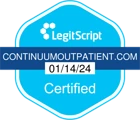Post-traumatic stress disorder (PTSD) is a mental health condition that can develop after experiencing or witnessing a traumatic event. The symptoms of PTSD can be severe and can interfere with daily life. However, there are many effective treatments and strategies for managing PTSD symptoms and improving overall mental health. In this article, we will explore the symptoms of PTSD, the causes and risk factors, and strategies for overcoming it.
Symptoms of PTSD
The symptoms of PTSD can be categorized into four main groups: re-experiencing, avoidance, hyperarousal, and negative changes in mood and cognition. Re-experiencing symptoms can include intrusive memories, nightmares, and flashbacks of the traumatic event. Avoidance symptoms can include avoiding people, places, or things that trigger memories of the event. Hyperarousal symptoms can include feeling constantly on edge, easily startled, and having difficulty sleeping. Negative changes in mood and cognition can include feeling irritable, negative thoughts, and feeling detached from others.
Causes and Risk Factors
PTSD can be caused by experiencing or witnessing a traumatic event. Traumatic events can include physical or sexual assault, combat, natural disasters, or accidents. PTSD can also develop from experiencing ongoing or repeated traumas, such as abuse or neglect. The risk of developing PTSD is higher for individuals who have experienced multiple traumatic events, have a family history of mental health conditions, or have a history of substance abuse.

There are many effective treatments and strategies for managing PTSD symptoms and improving overall mental health. Here are some strategies for overcoming PTSD:
Overcoming PTSD
- Seek Professional Help
PTSD can be a complex mental health condition that may require professional treatment. There are several evidence-based treatments for PTSD, including cognitive-behavioral therapy (CBT), eye movement desensitization and reprocessing (EMDR), and medication. CBT focuses on identifying and changing negative thoughts and beliefs related to the traumatic event, while EMDR uses eye movements or other types of sensory input to help process traumatic memories. Medication, such as antidepressants, can also be effective in managing symptoms of PTSD. It is important to work with a mental health professional to determine the best treatment approach for your individual needs.
- Practice Mindfulness
Mindfulness practices, such as meditation, can be effective in managing symptoms of PTSD. Mindfulness can help individuals focus on the present moment and reduce feelings of anxiety or stress. It can also help individuals become more aware of their thoughts and emotions and learn to regulate them more effectively.
- Build a Support System
Building a support system of friends and family can be an essential part of overcoming PTSD. Supportive individuals can provide emotional support, practical assistance, and a listening ear. Support groups can also be an effective way to connect with others who have experienced similar traumas and can provide a safe space for sharing experiences and coping strategies.
- Take Care of Your Physical Health
Taking care of your physical health can be an essential part of managing PTSD symptoms. Regular exercise, a healthy diet, and getting enough sleep can all help improve overall well-being and reduce feelings of stress and anxiety. Mind-body practices, such as yoga or tai chi, can also be effective in managing symptoms of PTSD.
- Practice Self-Care
Practicing self-care can be an essential part of managing PTSD symptoms. Self-care can include engaging in hobbies or activities that bring joy and pleasure, setting healthy boundaries, and practicing relaxation techniques, such as taking a warm bath or listening to calming music. It is important to prioritize self-care as part of an overall plan for managing PTSD.
In conclusion, PTSD can be a challenging mental health condition, but there are many effective treatments and strategies for managing symptoms and improving overall well-being. Seeking professional help, practicing mindfulness, and building a support network are steps that can be taken to overcome PTSD.
Learn about the mental health services offered by Continuum Outpatient.


